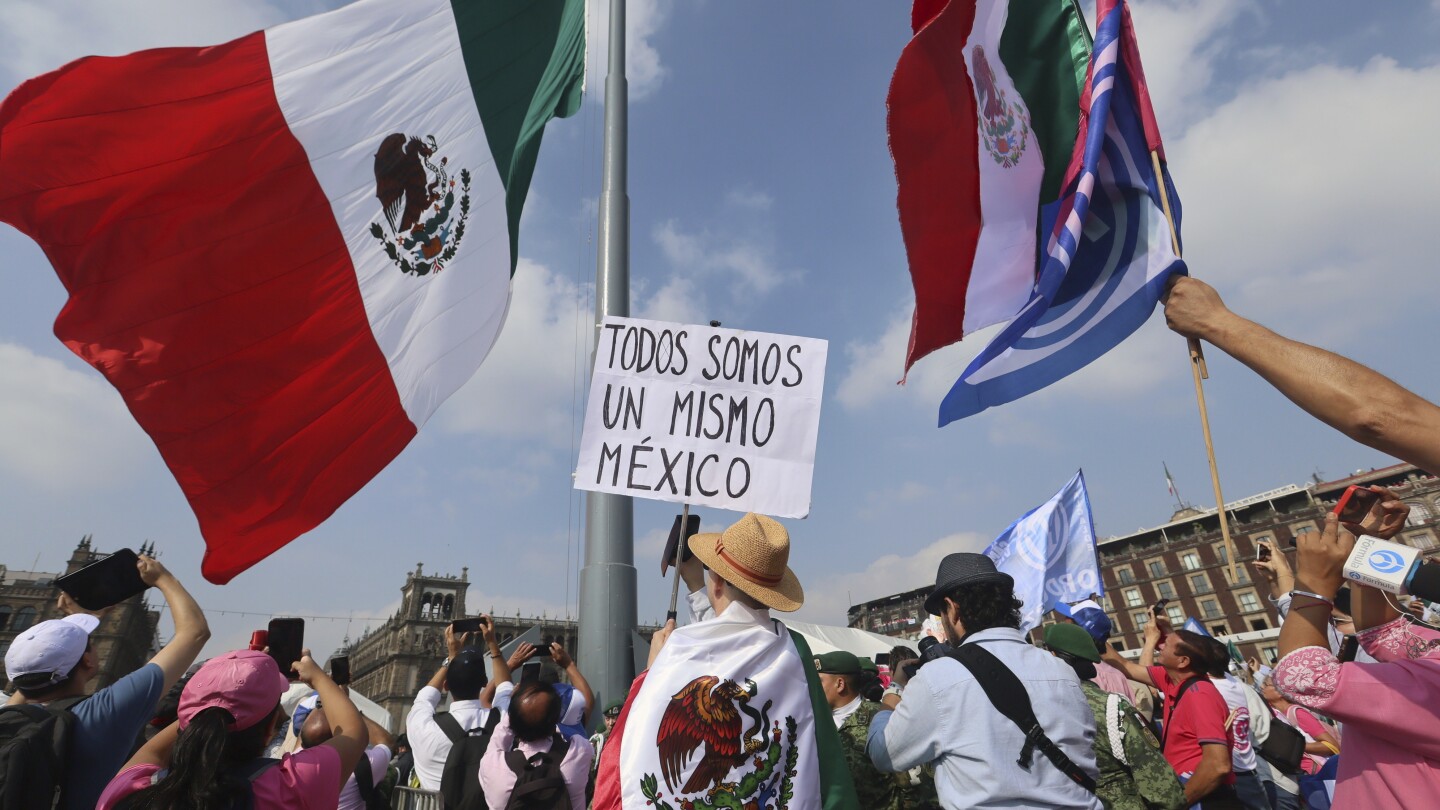Mexico’s Historic Elections Sunday: A Game-Changer for Gender, Democracy, and Populism
Mexico City is gearing up for historic elections this Sunday, with significant implications for gender equality, democratic values, and the rise of populism in the country. The major highlight of this election is the potential of Mexico electing its first female president, breaking barriers in a nation long dominated by a “macho” culture. The elections mark the largest in Mexico’s history, with over 20,000 congressional and local positions up for grabs. However, the shadow of cartel violence looms large over the voting process, with more than 20 political candidates falling victim to criminal groups this year alone.
The Candidates: Sheinbaum, Gálvez, and Máynez
Leading the race is Claudia Sheinbaum, the former mayor of Mexico City, who has consistently maintained a significant lead in polls. Backed by the ruling Morena party, Sheinbaum promises to continue the populist legacy of President Andrés Manuel López Obrador. In opposition, Xóchitl Gálvez, a tech entrepreneur and senator, represents a coalition of parties united in their criticism of López Obrador. The third candidate, Jorge Álvarez Máynez, is focusing on capturing the youth vote but has struggled to gain traction in the election race.
President López Obrador’s Impact and the Election Dynamics
Since taking office in 2018, President López Obrador has been a central figure in Mexican politics, with much of the current election revolving around his legacy. Despite his popularity among certain segments of the population, López Obrador has faced criticism for his attacks on the judiciary and democratic institutions in the country. If Sheinbaum emerges victorious, it would solidify López Obrador’s influence beyond his presidency, showcasing the enduring power of the Morena party.
The upcoming elections on June 2 will see Mexicans voting for various positions, including 128 senators, 500 congressional representatives, and thousands of local government officials. The campaign cycle has been marred by violence, with cartels exploiting the political unrest to strengthen their grip on power. Under López Obrador’s administration, the country has witnessed a surge in homicides, despite promises to address the root causes of violence.
In states like Chiapas, Guerrero, and Michoacan, where turf wars between criminal groups are prevalent, the election-related violence has reached alarming levels. The election holds the promise of Mexico’s first woman president, a significant milestone in a country grappling with gender-based violence and inequality. Both Sheinbaum and Gálvez have pledged to prioritize gender equality and address the deep-rooted disparities in Mexican society, signaling a potential shift towards a more inclusive and progressive political landscape.


















